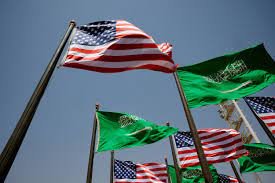
Saudi Arabia Accelerates AI Ambitions with U.S. Chip Deals and $50 Billion Investment
Riyadh secures access to advanced U.S. AI chips and pledges multibillion-dollar spending after Crown Prince’s Washington visit
Saudi Arabia is emerging as a major player in the global artificial intelligence race after securing access to advanced U.S. semiconductor technology and announcing a sweeping investment agenda.
A pivotal moment unfolded during Crown Prince Mohammed bin Salman’s visit to Washington, where the Administration under Donald Trump cleared exports of next-generation AI chips to the kingdom and formalised a strategic AI partnership.
The U.S. Department of Commerce authorised the export of advanced chips—including units from Nvidia’s high-end Blackwell line—to Saudi-backed AI firm Humain and to other Gulf entities, lifting prior export constraints and enabling billions of dollars in infrastructure deployment.
Humain, backed by Saudi Arabia’s Public Investment Fund, announced plans to deploy up to 600,000 of Nvidia’s latest AI accelerators over the next three years and to build a flagship data-centre campus in partnership with xAI (Elon Musk’s company).
The firm also unveiled collaborations with Adobe, Qualcomm and other global tech names to develop Arabic-language generative-AI tools and regional compute capacity.
During the meeting in Washington, the Crown Prince declared that Saudi Arabia would spend approximately US$50 billion in the short term on semiconductors and AI infrastructure, and called the U.S. a “long-term partner” in the technology domain.
The accords gained momentum alongside a U.S.–Saudi investment forum that presented some US$270 billion in agreements and memoranda of understanding across energy, defence, and technology.
While the deals signal a major shift in U.S. export-control policy and Gulf tech strategy, analysts note that much hinges on execution.
Projects such as Humain’s data centre plans, chip roll-outs and localisation of AI models must progress for the announcements to translate into on-the-ground capacity.
For now, the accords reflect both sides’ ambition: the U.S. advancing its high-tech exports and Saudi Arabia fast-tracking its Vision 2030 goal to diversify away from oil.
The partnership positions Riyadh as a regional AI hub and reinforces Washington’s role as a central supplier of cutting-edge technology.
A pivotal moment unfolded during Crown Prince Mohammed bin Salman’s visit to Washington, where the Administration under Donald Trump cleared exports of next-generation AI chips to the kingdom and formalised a strategic AI partnership.
The U.S. Department of Commerce authorised the export of advanced chips—including units from Nvidia’s high-end Blackwell line—to Saudi-backed AI firm Humain and to other Gulf entities, lifting prior export constraints and enabling billions of dollars in infrastructure deployment.
Humain, backed by Saudi Arabia’s Public Investment Fund, announced plans to deploy up to 600,000 of Nvidia’s latest AI accelerators over the next three years and to build a flagship data-centre campus in partnership with xAI (Elon Musk’s company).
The firm also unveiled collaborations with Adobe, Qualcomm and other global tech names to develop Arabic-language generative-AI tools and regional compute capacity.
During the meeting in Washington, the Crown Prince declared that Saudi Arabia would spend approximately US$50 billion in the short term on semiconductors and AI infrastructure, and called the U.S. a “long-term partner” in the technology domain.
The accords gained momentum alongside a U.S.–Saudi investment forum that presented some US$270 billion in agreements and memoranda of understanding across energy, defence, and technology.
While the deals signal a major shift in U.S. export-control policy and Gulf tech strategy, analysts note that much hinges on execution.
Projects such as Humain’s data centre plans, chip roll-outs and localisation of AI models must progress for the announcements to translate into on-the-ground capacity.
For now, the accords reflect both sides’ ambition: the U.S. advancing its high-tech exports and Saudi Arabia fast-tracking its Vision 2030 goal to diversify away from oil.
The partnership positions Riyadh as a regional AI hub and reinforces Washington’s role as a central supplier of cutting-edge technology.











